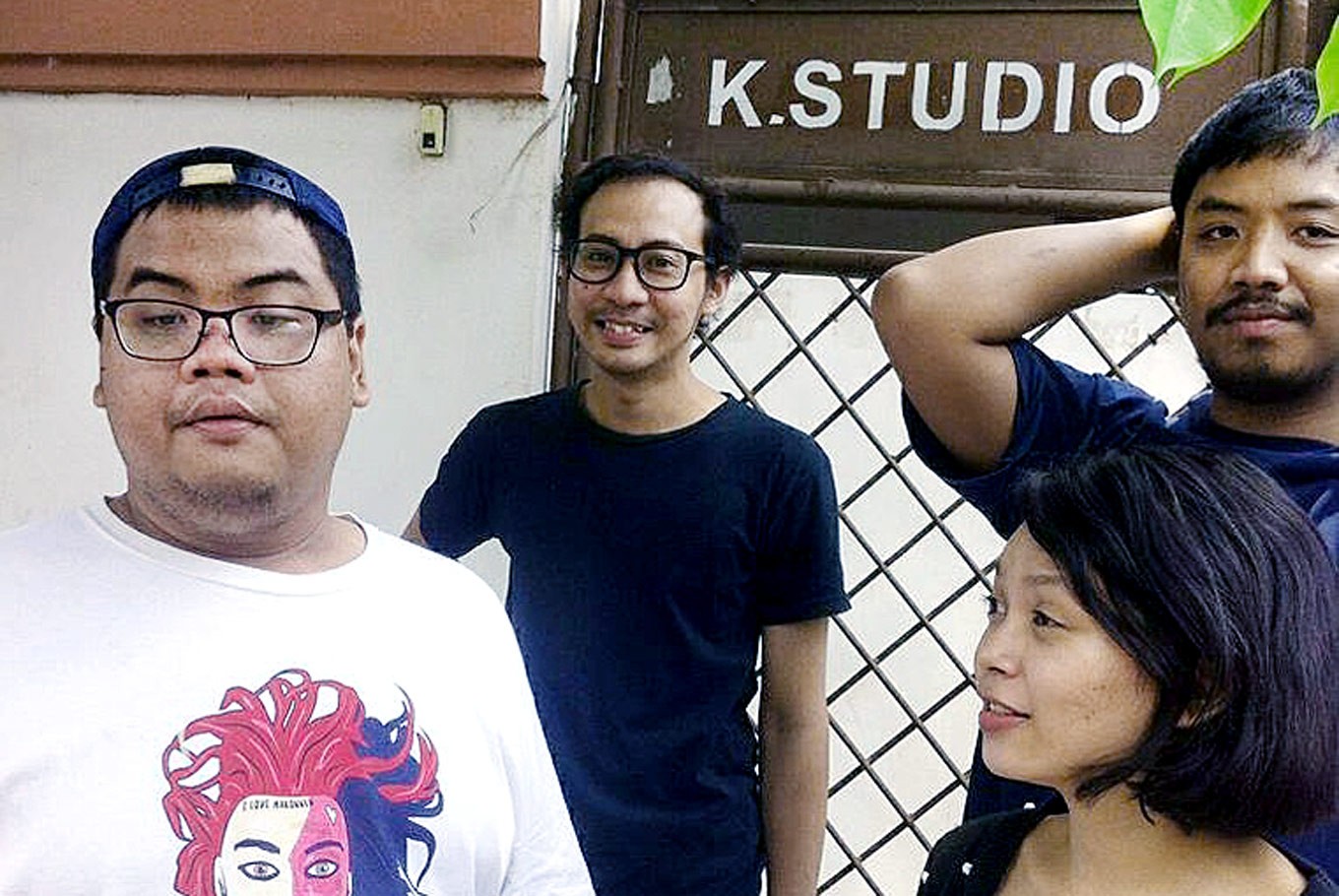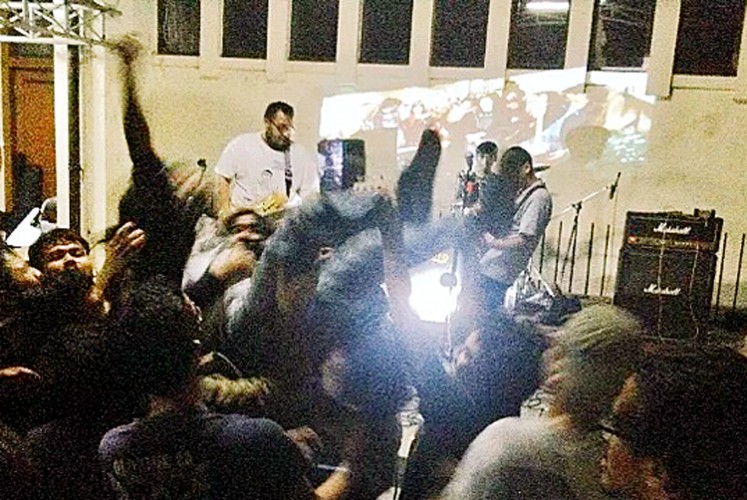Popular Reads
Top Results
Can't find what you're looking for?
View all search resultsPopular Reads
Top Results
Can't find what you're looking for?
View all search resultsRizkan Records: Bringing sophistication to pop-punk genre
Tangerang-based Rizkan Records is gaining ground as one of the key pop-punk independent labels in Indonesia.
Change text size
Gift Premium Articles
to Anyone
H
aving released records by some of the pop-punk scene’s most-recognized acts, including its most successful one Saturday Night Karaoke, the label is run by its namesake — the one-named Rizkan — who likes to tell it like it is; running an indie label by himself is no picnic.
Although he says that the label’s history is “nothing special,” he hints at some behind-the-scenes drama with a partner who left early due to “financial problems.”
Whether or not Rizkan still harbors any bitterness about the split, he certainly does not show it.
Far more eager to talk about the bands on his roster, Rizkan says that one of the goals is to realign pop-punk’s image from being easy-to-play, whiny-sung music into what it is to him: A life-changing approach to music with a wealth of history behind it.
For one, pop-punk is not always simply about playing the same three chords over and over again. It can be challenging to play.
“If we’re now seriously talking about ‘how to get a good pop punk band to put out a magnificent pop punk record,’ it won’t be all about the music skills you have. Good pop punk records were not made up of simple chords and a ‘not-too-good’ vocal style; it’s all about the songwriting and how you pour love and the swagger into it,” Rizkan argues, passionately.
While Rizkan admits that a lot of pop-punk band, both locally and internationally, follow the same formula without adding much into it, this is not the case with the bands with his label.
Many of them may have started off trying to checklist all the expected pop-punk elements in their music and listening only to the same chart-topping bands all their peers did, but they have grown into evoking a wider set of influences into their melodic rock sound.
“I have an example: Fatrace,” Rizkan says excitedly regarding one his own bands.
“Their first EP was, like, pretty mediocre, I have to say but the band eventually blossomed after its front man began listening to Japanese groups like The Hum Hums, Pelotan, as well as classic non-pop-punk bands such as the Beach Boys.”
Rizkan’s extroverted display of love for pop-punk, which is not particularly a new genre, having had its heyday in the late 1990s and early 2000s, is endearing but also begs the question of why now?
But what may feel passé to some is fresh and new to Rizkan, who formerly dove headfirst into hardcore punk music — specifically its sub-genres, which has names like “powerviolence,” “d-beat,” “crust” and “grind.”
Certainly the more-straightforward affection of “pop punk” comes as something that has recognizable elements (distorted guitars, energetic percussive work) and new ones (lots of melodic hooks, literal lyrics).
The shift came through the influence of a friend.
“Saturday Night Karaoke and its front man Prabu totally changed the way I previously saw pop punk. As you know, most people see pop-punk as the music of high-school kids and for the uncool kids. But Prabu introduced me to bands from Lookout Records bands like The Queers, Screeching Weasel, Mr T Experience, Pansy Division and others from (the similarly influential) Asianman Records label. Bands like Spoonboy, The Ergs, Full of Fancy and Cheeky,” Rizkan said.
From then on, Rizkan began to fall in love with a genre he formerly looked down on.
At the time, Rizkan was working on StoneAge Records, a netlabel (digital-only label) that put out all kinds of underground records from the punk scene. Putting his own name down for his new label, which would focus exclusively on pop-punk and release physical records, was his own method of committing fully.
Rizkan began by releasing albums and EPs by his friends’ bands.
He also connected with bands through social media, including Martha, Colour Me Wednesday, Felix! and Ghost Mice — all of which have now released albums with Rizkan. He also scours music-sharing websites such as Bandcamp to keep an eye on promising local acts that fit the label.
As for promotion, Rizkan admits to doing everything online, having abandoned the physical methods of promoting his bands.
“I think printing out flyers today is so ineffective,” he laughs.
Rizkan is not shy about standing out amid the many other pop-punk label in Indonesia.
“I never aimed on penetrating the local pop punk scene. What I’ve been doing now to this second, I will say it’s more about establishing a new emerging scene. Don’t get me wrong, I am not being exclusive here. It’s OK for me when friends listen to, let say, more mediocre pop-punk or skate-punk stuff. I’m just trying to put out some positive vibe here.”
Rizkan thinks that pop-punk in Indonesia runs the risk of being stagnant, with “kids stuck and going nowhere, not being eager to dig into deeper influences.”
Rizkan knows that for pop-punk to survive, it must evolve.
“I have some words regarding the pop punk scene today. I think most kids are stuck listening to the same old bands — No Use For A Name again or Lagwagon again. I’m OK with those bands and I like them, but we have to progress and be bolder in taking real action like setting up gigs, fanzines and labels.”












